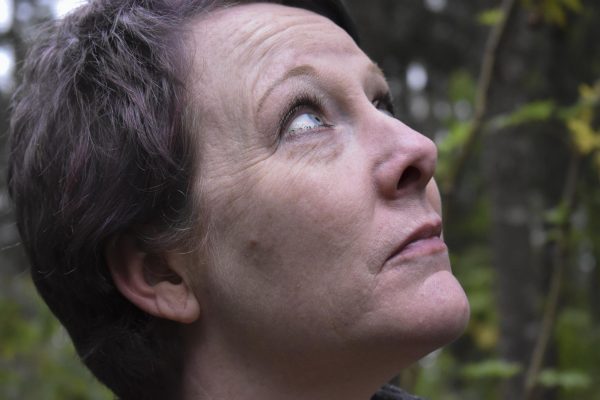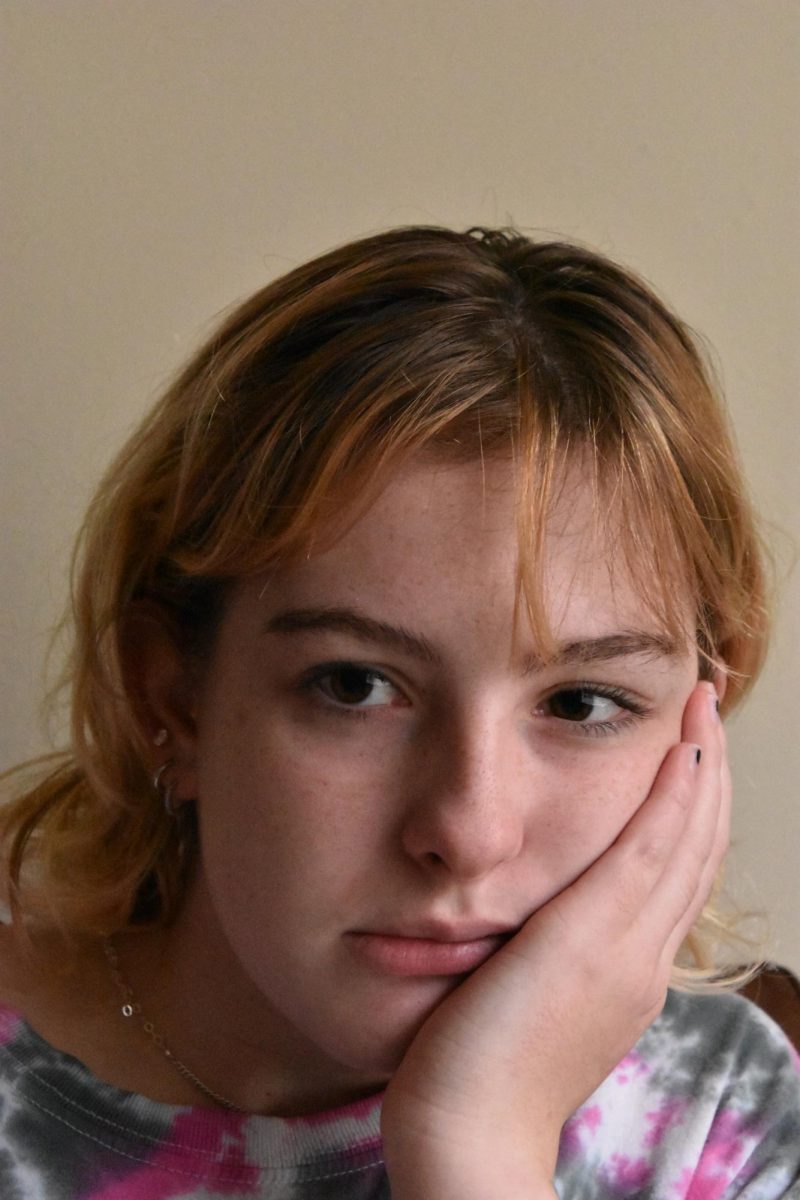Jade Canady didn’t always know she was considered different when compared to the other children. When others were able to socialize with their friends during recess, Jade could be found playing on the monkey bars by herself.
Since elementary school her mother and her gymnastic coaches knew she was going to compete as a high level gymnast. It was her passion. During the week, Jade knew once the school day was over, it was time for gymnastics practice. And she knew on the weekends, she and her mother would most likely be traveling to another state for a competition. That was the routine.
“I was pretty oblivious until about high school, when things became more cliquey. I could tell when I missed important social cues or I didn’t fit in as well as I used to, and that’s when I started actively masking so I would still fit in,” Jade said.
When discussing autism spectrum disorders, the term “masking” is the conscious or unconscious choice to change your physical behavior in order to please the allistic society.
In her freshman year in high school, Jade started seeing a sports psychologist for her gymnastics performance anxiety. She quickly found out that this form of therapy was not effective.
“At the time I was like, why aren’t these things working for me? Why is what he’s saying not making sense? Now I know, he was trying to help a regular 14-year-old girl, not an autistic 14-year-old. So the tools he would give me and the way he tried to help didn’t work because I wasn’t neurotypical,” Jade said.
Jade’s mother could easily see that her daughter was struggling, and took it upon herself to do more research. Now understanding that Jade may be neurodivergent, her mother scheduled an autism testing appointment. Things were finally starting to make sense.
Now in college, Jade found a therapist who specializes in females with an autism spectrum disorder. This therapist introduced the idea of: How many spoons do you have?
“At the beginning of the day you have a certain amount of spoons, and because I am autistic, I think I start my day with a little bit less spoons than other people do. You lose a spoon when you do something mentally, emotionally or physically taxing, and you gain a spoon when you do something that makes you feel better. Completing a bigger task, like a presentation or test, would take away two or three spoons,” Jade said.Jade Canady

The example Jade used was perfect. After diving practice she is physically exhausted, meaning she loses a spoon. Practicing her sport and being with her teammates bring her joy, causing her to gain a spoon. When returning home from an exhausting competition, she has no spoons left, leading her to irritability, shutting down and being overwhelmed easily.
Recognizing this pattern, her therapist sparked the important conversation of articulating that you are out of spoons.
“When I’m out of spoons I can’t even form a sentence to tell people around me that I’m wiped. Which just leads to more problems,” Jade replied.
As of right now, Jade and her therapist are figuring out how she can inform her peers way before these non-verbal episodes happen. They are both aware that informing others will not make these moments disappear. Jade knows how to calm herself down, she just needs the space to do so.
“I’ve been pretty good at self regulating and I will listen to my body,” Jade said.
Jade is 21-years-old, and recognizes that the correct form of therapy is incredibly beneficial to her. Not only has this particular therapist provided Jade with the right tools to help her go about her day, but they’ve also helped her realize she doesn’t always need to mask. And more importantly, that there should be no shame in choosing not to mask.
* * *
“We didn’t ignore my daughter’s sensory issues,” said her mother, Andrea Canady.
Andrea said, while her daughter was in elementary school her teachers were able to make a profound connection. When the noise in the classroom was too loud and overstimulating, Jade would purposely get in trouble, so she’d be able to sit in the hall where it was much quieter.
Neither Jade, nor Andrea knew it at the time but this was her self regulating. Instead of getting upset or frustrated, Andrea spoke to her teachers and expressed that her daughter would need some extra attention in the classroom. Fortunately Jade’s teachers were able to provide the support she needed.
Another example of Jade needing more attention, was the task of getting dressed in the morning.
“An everyday issue we had, would be finding clothes to wear,” Andrea said.
At the time Andrea was unsure why her young daughter had her few favorite outfits, even when she insisted that the tags were cut out of every piece of clothing she owned. She is now able to make the connection of why certain clothes were worn repetitively.
* * *
“My dad and my mother would always ask, how come your brother always has homework, and you never do,” Alfonso said.
Young Alfonso Reyes lived a social life in Mexico City, Mexico, and throughout his middle and high school years his academics were not much of a priority for him. Alfonso acquired the knowledge, but not the grit to work through the strict teachers and busy work that was involved with school.
“My grades, I don’t think they were related to how my brain is wired, but more about screw school,” Alfonso said.

College was a different experience. Alfonso attended a small private business management school that was focused on tourism. In his first semester, he enrolled in a class with his main friend group. Throughout the course the professor would assign group projects and allow the class to choose their own groups, and the five of them would work together every time. The group knew their friends’ strengths and weaknesses, and were supportive in and out of the classroom.
When discussing the making of new friends, Alfonso said, “Outside of the group of people that I already knew, I didn’t feel comfortable meeting other people. I sit quiet. I sit in a corner, and I study that person. It may take me two-three days, two-three hours to realize if I want to talk to that person.”
“I was way, way, way more social back then, I don’t know if with time I have realized and come to the conclusion that I have absolutely no interest to hang out with people.”
Later in the conversation, it was revealed that he was aware of what made him come to this conclusion.
“People! People ruined it for me,” he said.
After separating from his first wife in 2002, Alfonso met his life partner in 2014. Within this relationship he began to understand that he was not as mature as he once thought.
“How much time and energy do I want to put into this fight, and how much am I going to get back,” he said.
Alfonso is currently 56-years-old, and is able to use the skills he learned in therapy.
“Right now I would much rather work by myself, then with a group of people. I can adapt. I would prefer to not.”
“I wish I had known this 10 years ago because I could have changed the outcome of so many things.”
* * *
After graduating in 1996, one of Traci Withrow’s first professional jobs was as a foster care social worker where she was able to see how poorly the foster care system was (and is still) managed.
“I thought I could do a better job since I had more education, more experience, more child development knowledge. I wanted to give some foster children a better foster care experience with someone who really knew what they were doing. Turns out I was wrong, but let’s just leave it at that.”
When Traci received Kathy’s profile she believed that her behavioral and developmental concerns were going to be manageable.
“No where did they say what I was getting into,” she said.
Traci didn’t comprehend what she had committed herself to until she met Kathy later on that month.
“They put the bare minimum on these profiles because they need to place these kids.”

(Bella DiBenedetto)
Completing schoolwork was a conflict that frequently arose between Traci and Kathy.
“Homework, everyday. Everyday. Meltdowns about homework,” Traci said.Bella DiBenedetto
At first Traci patiently sat with Kathy to get her homework done, but as time passed there was no improvement in her behavior towards schoolwork. She revealed it got to the point where a conversation took place with the Special Education teacher stating that Kathy will give a solid attempt at the homework, but as soon as a meltdown starts, they would be putting the homework away.
“I took the expectation off of the homework, because her emotional well-being and our relationship was more important than math problems.”
* * *
It seems navigating life is one of the most difficult things a human will do. Some have it easier than others, but we all struggle in some sense. People struggle with forming new relationships with others and we struggle maintaining a healthy relationship with ourselves.
It is often thought those diagnosed with autism spectrum disorders have a more difficult time. Autism spectrum disorders can be loosely defined as complex neurodevelopmental disorders characterized by deficits in socialization, communication, and behavioral function.
Although we have matured as a society by trying to understand the cause and effect of physical, intellectual and developmental disabilities, there are still misconceptions surrounding assistance to those in need.
Help looks different for everybody.


















